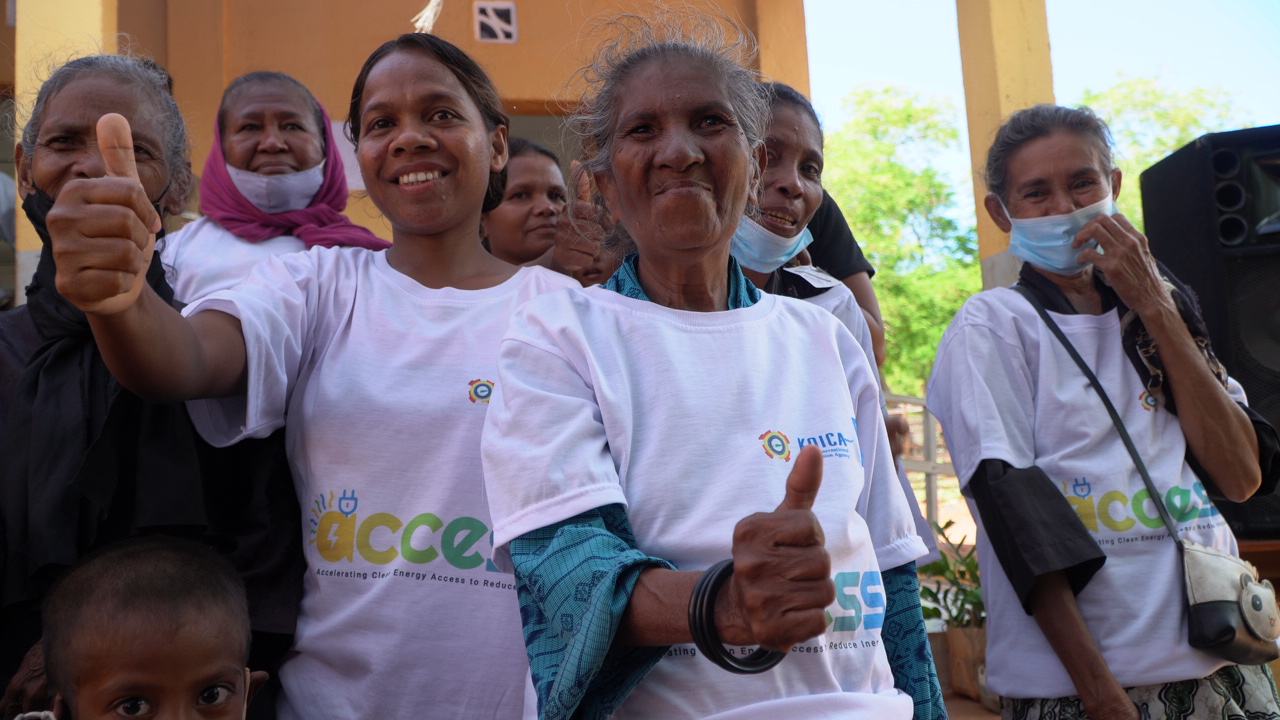Accelerating Clean Energy Access to Reduce Inequality (ACCESS)
Accelerating Clean Energy Access to Reduce Inequality (ACCESS)
Summary
Timor-Leste's National Strategic Development Plan 2011-2030 targets that everyone in TimorLeste will have access to reliable electricity 24 hours a day by 2030. To achieve this target, rural electrification is a priority in Timor-Leste which will also contribute to urban and rural job growth and development. Based on the National Rural electrification master plan (REMP), in 2018, the electricity grid has reached most part of the country. However, according to the National Directorate for Research and Electricity Development, over 25% Sucos (Villages) & Aldeias (sub-villages) in Timor-Leste still have no access to the electricity grid.
The Installation of solar light in Manatuto Municipality
Background
The objective of the Accelerating Clean Energy Access to Reduce Inequality (ACCESS) project is to support the poor and most vulnerable communities to have equitable and sustainable access to basic services for improving their livelihoods. The ACCESS project will be implemented in 2020-2023 in 23 villages in four provinces in Indonesia (East Nusa Tenggara, West Sulawesi, SouthEast Sulawesi and Central Kalimantan provinces) and 25 villages in three municipalities of TimorLeste (Municipality of Dili (Atauro), Bobonaro and Manatuto). The ACCESS project is funded from the grant of USD 18,028,509 from the Korea International. Cooperation Agency (KOICA) Indonesia, from which Indonesia's allocation is USD 15,028,509 and USD 3 million for TimorLeste. UNDP Indonesia is the implementation partner of KOICA for the ACCESS project. Under overall project management oversight by UNDP Indonesia, the UNDP Timor-Leste is responsible for producing Output two under South-South Triangular Cooperation (SSTC) activities with Indonesia in forms of clean energy technology and technical certification for local operators. For the project implementation, ACCESS projecrwill be supported by the Project Management Unit (PMU) in Indonesia and Timor-Leste. The Ministry of Energy and Mineral Resources (MEMR) and KOICA Indonesia are the counterparts in Indonesia, while the Ministry of State Administration (MSA), KOICA Timor-Leste are the counterparts in Timor-Leste. These counterparts are the project board members expected to steer and provide strategic direction to the PMU.
Major
Achievements
- 1000 Highly Efficient Solar Lamp Systems (LTSHE) have been provided benefiting 5341 people (47% women, 53% men, and 1712 students).
- Seven (7) solar water pump (SWP) systems are under construction in 11 sites that will provide water to 551 households in three municipalities and will benefit 2561 people (51% women and 49% men).
- Seven (7) Environmental licenses from ANLA (National Authority for Environmental License have been obtained.
- Five (5) Cultural Ceremonies were completed in 5 water sources in Manatuto and Bobonaro.
- The Detailed Feasibility Study for the Solar Water Pump System has been completed by the collaboration between Badan Riset dan Inovasi Nasional (BRIN) and Universidade Nacional Timor Lorosa’e (UNTL).
- Seven (7) water sources in three municipalities, including Bobonaro, Ataúro, and Manatuto, have been tested for quality assurance.
- Thirty (30) local operators from the three municipalities (Bobonaro, Ataúro, and Manatuto) who will operate and maintain the Solar PV Water Pump System have been trained and certified in Jakarta by the Human Resource Development Centre on Electricity, New Renewable Energy, and Energy Conservation of Indonesia, PPSDM KEBTKE (Pusat pengembangan Sumber Daya Manusia Ketenagalistrikan, Energi Baru, Terbarukan dan Konservasi Energy) under the South-South Cooperation framework.
Project Outcome
The project aims to support the poor and most vulnerable communities to have equitable and sustainable access to basic services , namely water and electricity, for improving their livelihoods. |
Voice of beneficiaries from Manatuto municipality
Related Materials
Access Factsheet 2021 | Project Document |

 Locations
Locations





